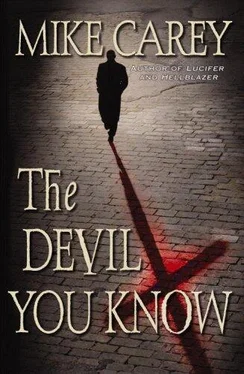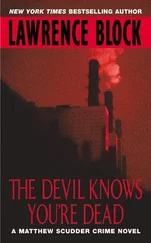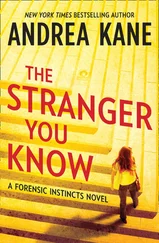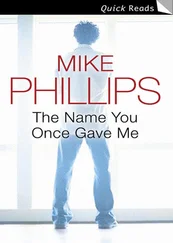But tonight, everything was pretty quiet. Even the sign over my door was holding up pretty well. Sometimes the kids from the Stonehouse Estate come by with their airbrushes and turn the sign into something whimsical and baroque, obliterating in the process the simple, dignified face I present to the world. But tonight the words F. CASTOR ERADICATIONS stood out in all their austere clarity.
Grambas, the proprietor of the kebab house next door, was leaning in his doorway, enjoying a roll-up cigarette whose heavy smoke hung around him like a shroud. He grinned at me as I unlocked the street door, and I shot him a wink. We’ve got an understanding: he’s promised me that he won’t lay ghosts or bind demons so long as I don’t serve greasy fried food and overmatured salads.
My office is actually above the kebab house. Once inside the door, there’s a narrow flight of awkwardly high stairs that leads up, with a sharp, right-angled bend, to my second-floor premises. Pen says the stairs are high because the conversion was a weird one, swapping between three stories and four, depending on which of the original residents sold out and which ones stayed. I reckon the builders were working on margin; twenty high steps are quicker to throw up than thirty normal-size ones.
I scooped up a thick handful of mail and headed on up. Even if you’re fit, you get to the top of those steps a little breathless. I’m not fit. I kicked open the office door, breathing like a dirty phone call, and flicked on the light.
It’s not much of an office, even by Harlesden standards. Being over a kebab shop—while it has its advantages in terms of daily sustenance—tends to lend a greasy miasma to the walls, the furniture, and the air you breathe. And Pen had never made good on her promise to get me some decent furniture (although her offer still stood if I ever got even on the rent), so all I had was a Formica-topped self-assembly desk and two tubular steel chairs from IKEA. The filing cabinet was a two-drawer midget that also served as a table to hold the kettle and tea things. By way of decoration, I had six framed illustrations from Little Nemo in Slumberland , which I’d got from IKEA on the same expedition that brought me the chairs. They made clients feel relaxed and receptive. Also, they weighed in at less than four quid each.
Yes, it was pathetic. But it was mine.
Or, at least, it had been.
I sat down in one of the chairs, put my feet up on the filing cabinet, and started to flick through the post. For each piece of real mail, there were two curry-house fliers and a great investment opportunity, which made progress fairly fast; not many envelopes actually needed to be opened before making the fall of shame into the already-overflowing wastepaper basket. An electricity bill, black, and a phone bill, red . . . these colors change with the seasons and are a gentle reminder of time’s passing.
I stopped short. The next envelope in the stack was pale gray and bore a return address that I recognized: the Charles Stanger Care Facility, Muswell Hill. My name was written on the front of the envelope in a pained, cramped hand in which curved lines were approximated by collections of short, angular jags. It was fractal handwriting; looking at it, you imagined that under a microscope, every stroke of the pen would open up into a thousand angled flecks of tortured ink.
Rafi. Nobody else wrote like that. Nobody sane could write like that.
I opened the envelope carefully, peeling back the gummed flap rather than just tearing off one end and running my finger along. Rafi had caught me with a razor blade once, taped into the corner of the envelope. I’d almost lost the top joint of my thumb. This time, though, there was nothing except a single sheet of paper torn from a notepad. On it, in very different handwriting from that which had addressed the envelope (but still Rafi’s hand—he had several), there was a message that, if nothing else, was admirable in its brevity.
YOURE GOING TO MAKE A MISTAKE YOU NEED TO TALK TO ME BEFORE YOU MAKE A MISTAKE YOU NEED TO TALK TO ME NOW
I was still staring at the letter, unsure whether to put it into my pocket or let it fall into the basket, when the phone rang. Picking it up was a reflex action; if I’d thought about it, I would have let it lie, because it was bound to get me into a conversation that I didn’t want or need.
“Mr. Castor?”
It was a male voice, dry and harsh with an overtone of stern disapproval. It conjured up an image of a preacher with a Bible in his hand and his finger pointing at your heart.
“Yes?”
“The exorcist?”
I considered lying, but since I’d confessed to my name, there wasn’t any point. Anyway, it was entirely my own fault. Nobody had made me pick up the frigging phone; I’d done it of my own free will, as a consenting adult.
And now I had a customer.
THIS WAS TEN YEARS OR MORE AFTER THE DEAD first began to rise—I mean, to rise in sufficient numbers that it wasn’t an option anymore just to ignore them.
They’d always been there, I guess. Certainly as a kid I was seeing them on and off whenever I was in any place that was quiet or where the light was dim. An old man standing in the street, staring at nothing as the mothers pushed their strollers right through him and kept on walking; a little girl hovering irresolute by the swings in the local playground, through all the watches of the night, and never clambering on for a ride; a shadow in the deeper shadows of a narrow alley that didn’t move quite in sync when a car went by. It wasn’t ever much of a problem, though, even for people like me, who could actually see them; most ghosts keep themselves to themselves, and it’s not like you have to feed them or clean up after them. Ninety-nine out of a hundred will never give you any trouble at all. I learned not to mention them to anybody and not to look at them directly in case they cottoned on to me and started talking. It was only bad when they talked.
But something happened a few years before the page turned on the old millennium, as though some cosmic equivalent of a big, spiteful kid had come along and poked a stick into the graveyards of the world, just to see what would happen.
What happened was that the dead swarmed out like ants—the dead, and a few other things.
Nobody had any explanation for it, at least not unless you counted the many variations on “we are living in the last days, and these are the signs and wonders that were foretold.” That was an argument that played fairly well, up to a point. The Christians and the Jews had put their money on a bodily resurrection, and that was what some people seemed to be getting. But the Bible is strangely coy on the subject of the were-kind, hedges its bets on demons, and draws a big fat blank on ghosts, so the Christians and the Jews didn’t really seem to be any better placed than the rest of us to call the toss.
The theological arguments raged like brush fires, and under the smoke that they threw up, the world changed—not overnight, but with the slow, irrevocable progress of an eclipse, or ink soaking into blotting paper. The promised apocalypse didn’t come, but new testaments were written anyway, and new religions kick-started. New and exciting careers opened up for people like me. Even the map of London got redrawn, which as far as I was concerned was the hardest thing to believe and accept.
I was born elsewhere, you have to understand—up North, two hundred miles from the Smoke—and my view of London is an outsider’s view, assembled in easy pieces over the last twenty years. When I picture the city in my mind, I tend to see it in simplified, schematic terms—like the cageful of snakes, orange on green on blue, that you see on the inside cover of the A–Z. Where the biggest snake—the king python, the Thames—runs right through the middle, that’s the null zone. Ghosts can’t cross running water, and they don’t even like the sound of it all that much. Lesser demons and were-things will usually balk at it, too, although that’s not so widely known. So the river’s a good place to be, unless for any reason communing with the dead is something that you actually want to do.
Читать дальше











